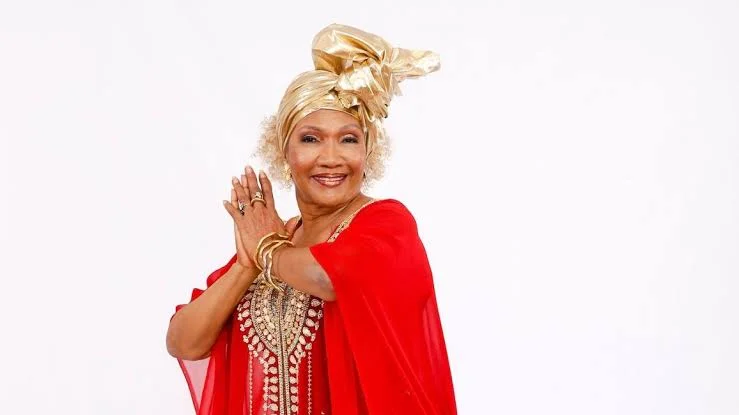Marcia Griffiths

Marcia Griffiths
The Life and Legacy of Marcia Griffiths
Marcia Griffiths stands as a towering figure in the world of reggae music, a genre largely populated by male artists. Her extraordinary career spans decades and genres, from the early days of ska and rocksteady to the pulsating rhythms of dancehall and funk. Known as the “Queen of Reggae,” Griffiths has made an indelible mark on the music industry with her versatile talent and collaborative spirit.
Early Life and Musical Beginnings
Birth and Early Interests
Marcia Llyneth Griffiths was born on November 23, 1949, in Kingston, Jamaica. While there has been some debate about her birth year, with Griffiths sometimes citing 1953, her musical journey began in Kingston. As a child, Griffiths was immersed in music, singing in her church choir and participating in school musical presentations. Her passion for music was evident from a young age. She took her first steps toward a professional career at the tender age of 15.
Discovery and Breakthrough
In a serendipitous turn of events, Griffiths was discovered while singing at a friend’s party. She caught the attention of Philip James, a member of the vocal group The Blues Busters. He arranged for her to participate in a talent competition. Her performance was met with enthusiasm, which led to an invitation to perform on a television variety show that same evening. This pivotal moment marked the beginning of her illustrious career.
Rise to Fame
Early Hits and Collaborations
Griffiths’ first major hit came in 1967 with the single “Feel Like Jumping,” a rocksteady track that resonated in Jamaica and Great Britain. This was followed by successful singles like “Melody Life” and “Truly.” Her debut album, Marcia Griffiths at Studio One, solidified her presence in the music scene. In 1969, she formed a successful duet partnership with Bob Andy. This resulted in hits like “Young, Gifted and Black,” which became an international sensation in 1970.
The I-Threes and Bob Marley
In 1974, Marcia Griffiths joined the I-Threes, a trio of female singers that included Judy Mowatt and Rita Marley. This group became an integral part of Bob Marley and the Wailers, contributing to the iconic sound of albums like Natty Dread. The I-Threes continued to perform with Marley until his untimely death in 1981, leaving a lasting legacy in reggae music.
Evolution and Continued Success
Solo Career and Dancehall Influence
Griffiths’ solo career flourished alongside her work with the I-Threes. Notably, her 1982 track “Electric Boogie” became a significant hit in Jamaica. The song experienced a resurgence in 1989 when it inspired the Electric Slide dance. This propelled it onto the American charts, cementing Griffiths’ status in the United States. Her ability to adapt to evolving musical styles, from roots reggae to dancehall, ensured her continued relevance.
Collaborations and Recognition
Throughout the 1990s and 2000s, Griffiths maintained a robust international presence, collaborating with artists across genres. She worked with names like Beres Hammond and Buju Banton, showcasing her versatility. Her contributions to the Grammy Award-winning album True Love in 2004 highlighted her enduring appeal. In 2012, the compilation Marcia Griffiths & Friends celebrated her rich career, featuring 38 collaborations.
Legacy and Impact
Honors and Recent Work
Marcia Griffiths’ impact on reggae music has been profound. In recognition of her contributions, the Jamaican government awarded her the Order of Distinction in 2014. She continued to honor reggae’s roots with the release of Timeless in 2019. This album paid homage to the legendary Studio One label. Her renditions of classics by artists like Alton Ellis and The Heptones showcased her deep respect for the genre’s history.
Conclusion
Marcia Griffiths’ journey from a young girl singing in Kingston to becoming the “Queen of Reggae” is a testament to her talent, resilience, and passion. Her influence transcends generations, inspiring countless artists and fans worldwide. As a pioneer in a male-dominated industry, Griffiths has not only shaped the sound of reggae but has also paved the way for future female artists. Her legacy, marked by innovation and collaboration, continues to thrive. This makes her a true icon in the world of music.












